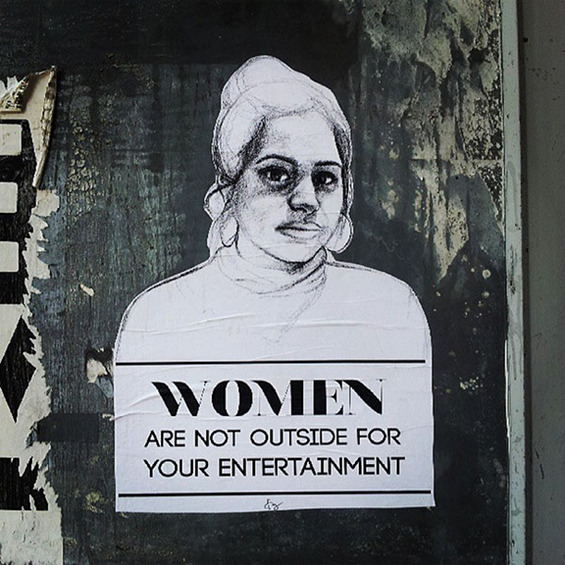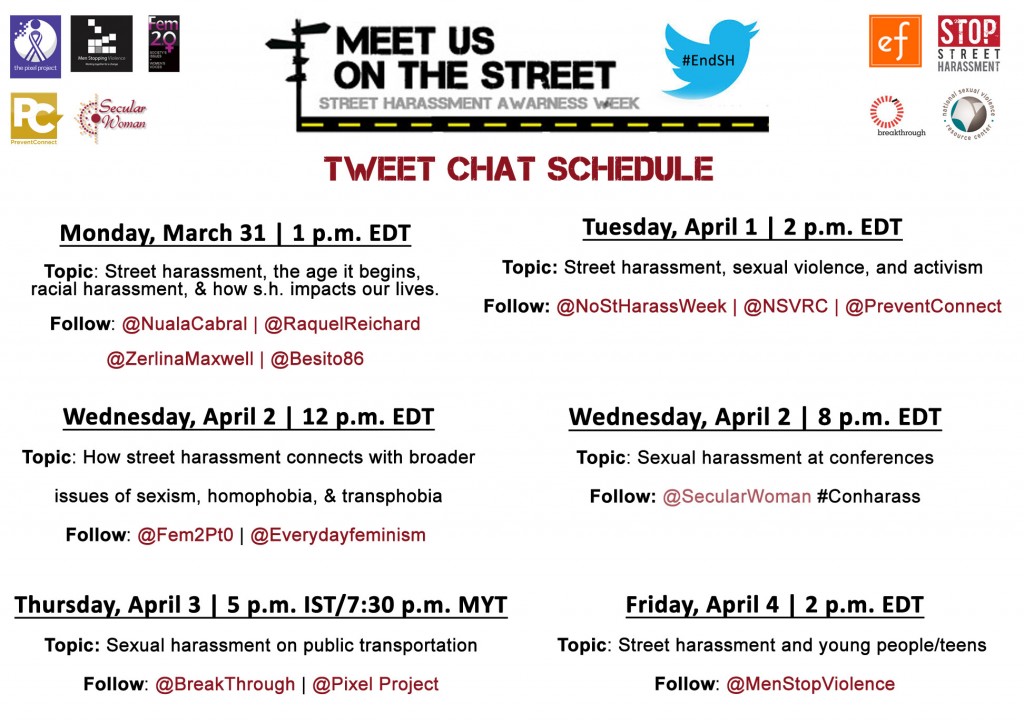By Kendra Corbin, SSH Intern
March has proven to be an exciting month in the fight against street harassment! This global issue has recently made the headlines in several countries:
In recent years, traditional gender values in Jordan have been struggling to merge with modern lifestyle choices. Many women now work outside of the home and reject having male escorts while out in public. However, street harassment has steadily risen alongside this new-found independence. Jordanian women often find themselves choosing to either endure harassment or risking their family’s fragile reputation if they choose to report their crimes.
Social media is now becoming an imperative tool in the fight against street harassment. Organizations such as HarassMap in Egypt and Uprising of Women in the Arab World use social media outlets to raise awareness and encourage societal change. While women are grateful for the effort, many activists admit that in order to eliminate street harassment, real change needs to take place within the government and its laws.
On March 18, activists in Kathmandu, Nepal, organized the Safe City Campaign. Their main goal is to raise awareness about street harassment and ultimately make Nepal streets safer for women. Along with providing possible solutions to the issue, activists and volunteers dispensed 2,000 flyers around public spaces. These flyers highlighted that street harassment is intolerable behavior. Campaign members acknowledge that encouraging people to talk about the issue is an important step in eliminating street harassment.
Expected to begin in April, sexual harassment in Belgium will be punishable by either hefty fines or up to one year in prison. The new law will extend to sexual harassment that takes place on the streets, in the workplace, or on social media sites. Deputy Prime Minister Joelle Milquet claims that while the law’s main objective is to protect women from violence and sexism, it will also protect men from demeaning sexist comments.
Street harassment in Belgium began gaining attention following Sofie Peeter’s documentary Femme de la Rue. The documentary consisted of footage from a hidden camera depicting the overt sexual harassment that women endure in public and interviews with women about their own experiences.
As of 2011, countries such as Italy, Germany, United Kingdom, Denmark, and Belgium signed a pledge vowing to take legal action in order to eliminate violence against women. Belgium has clearly stayed true to its promise.
Kendra Corbin is senior at Shenandoah University. She is majoring in Mass Communications and minoring in Women’s Studies.


 International Anti-Street Harassment Week
International Anti-Street Harassment Week
 Stop Telling Women to Smile
Stop Telling Women to Smile
